University College London (UCL) stands as a beacon of academic excellence, innovation, and global impact. Founded in 1826, UCL has played a pivotal role in shaping the landscape of higher education and research.
With its diverse academic offerings, world-renowned research, and commitment to sustainability, UCL continues to attract the brightest minds and drive progress in various fields, leaving an enduring legacy on society.
University College London (UCL) History
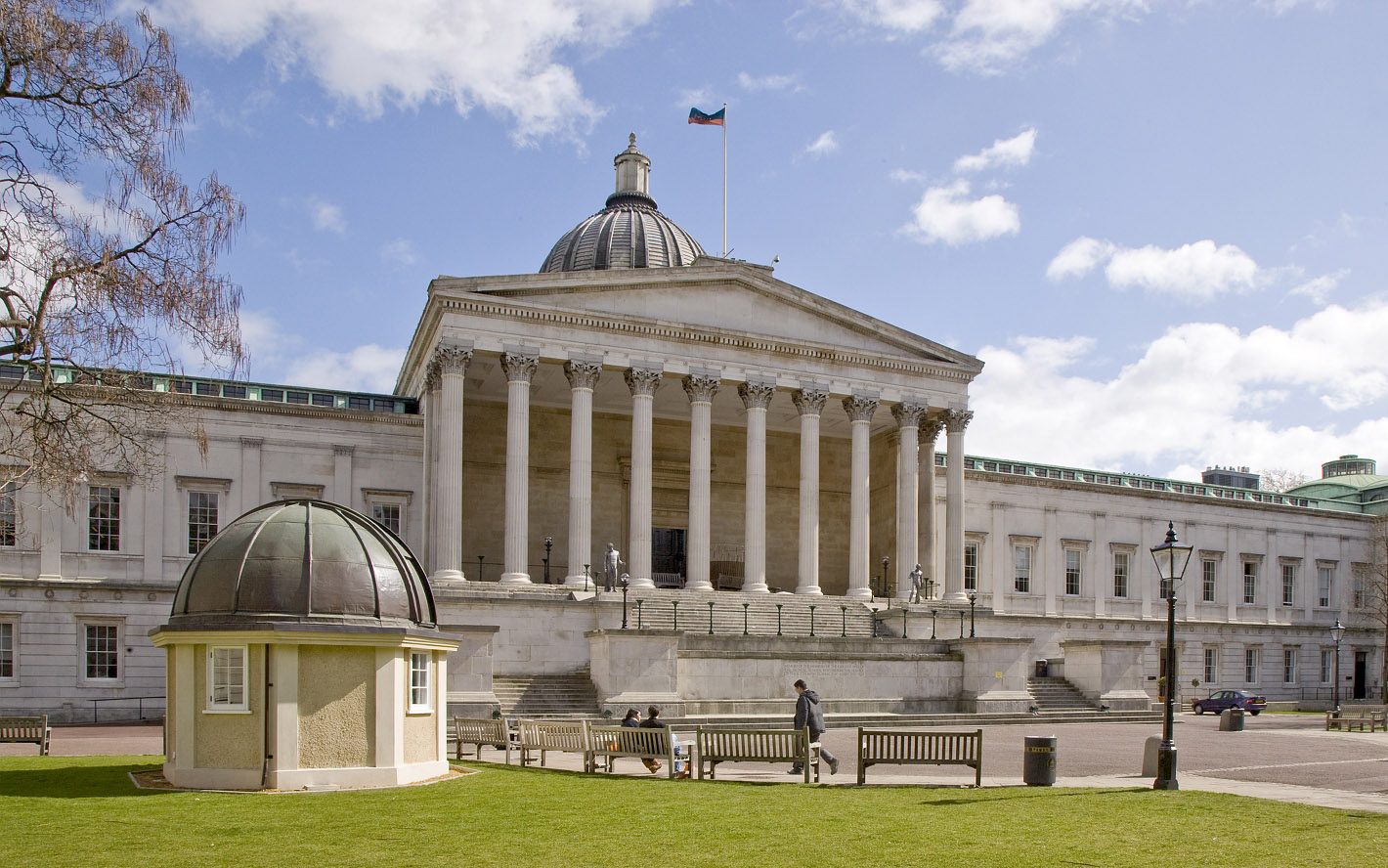
University College London (UCL) is a public research university located in London, England. It is one of the UK’s leading universities and is consistently ranked among the top 10 universities in the world.
Founding and Significance
UCL was founded in 1826 as the University of London, the first university in England to be established without religious affiliation. It was founded by a group of reformers who believed that higher education should be open to all, regardless of their religious beliefs or social class.
UCL quickly became a leading center for teaching and research in a wide range of disciplines, including medicine, law, and the arts. It was also a major center for the development of new ideas in politics, economics, and social reform.
Timeline of Key Events
- 1826: UCL is founded as the University of London.
- 1836: UCL is granted a royal charter by King William IV.
- 1849: UCL becomes the first university in England to admit women.
- 1869: UCL opens its first medical school.
- 1907: UCL becomes a founding member of the University of London.
- 1948: UCL is granted full university status.
- 2004: UCL merges with the Institute of Education.
Notable Figures
UCL has been associated with a number of notable figures throughout its history, including:
- Thomas Huxley
- Charles Darwin
- William Ramsay
- Alexander Graham Bell
- Mahatma Gandhi
- Nelson Mandela
Major Academic Schools and Institutes
UCL is organized into a number of academic schools and institutes, each of which specializes in a particular area of study.
- Faculty of Arts & Humanities
- Faculty of Brain Sciences
- Faculty of Engineering Sciences
- Faculty of Laws
- Faculty of Life Sciences
- Faculty of Mathematical & Physical Sciences
- Faculty of Medical Sciences
- Faculty of Population Health Sciences
- Faculty of Social & Historical Sciences
- School of Slavonic & East European Studies
- Institute of Advanced Studies
- Institute for Innovation and Public Purpose
Impact on Academic Disciplines
UCL has had a major impact on the development of a number of academic disciplines, including:
- Medicine
- Law
- Economics
- Politics
- Social reform
Architectural Evolution of UCL’s Campus
UCL’s campus has evolved over time to reflect the university’s changing needs.
The earliest buildings on the campus were built in the 1820s and 1830s in a neoclassical style.
In the late 19th and early 20th centuries, a number of new buildings were added to the campus in a Gothic Revival style.
In the 1960s and 1970s, a number of modern buildings were added to the campus, including the iconic Cruciform Building.
In recent years, UCL has invested heavily in new buildings and facilities, including the UCL East campus, which opened in 2016.
UCL Academics
UCL is renowned for its academic excellence, offering a wide range of undergraduate and postgraduate programs across various disciplines. The university boasts a diverse student body, with over 40,000 students from more than 150 countries. UCL also employs a highly esteemed faculty of over 12,000 academic staff, including Nobel laureates and leading researchers in their respective fields.
Academic Programs
UCL offers a comprehensive range of academic programs, spanning the arts and humanities, sciences, engineering, social sciences, and medical sciences. Some of the notable programs include:
- Archaeology
- Architecture
- Biomedical Sciences
- Business and Management
- Computer Science
- Economics
- Engineering
- Fine Arts
- History
- Law
- Medicine
- Philosophy
- Physics
- Psychology
Research Strengths
UCL is a research-intensive university, with a strong emphasis on innovation and discovery. The university’s research strengths lie in areas such as:
- Biomedicine
- Cancer research
- Climate change
- Data science
- Energy
- Globalization
- Neuroscience
- Quantum technologies
- Space exploration
UCL has made significant contributions to the advancement of knowledge through its groundbreaking research. Notable achievements include the discovery of the Higgs boson, the development of new cancer treatments, and the advancement of artificial intelligence. The university’s research has also had a positive impact on society, addressing global challenges and improving the lives of people worldwide.
UCL Campus and Facilities
UCL’s main campus is located in Bloomsbury, central London. The campus is a mix of historic and modern buildings, with many of the older buildings dating back to the 19th century. One of the most iconic buildings on campus is the Wilkins Building, which houses the university’s main library. Other notable buildings include the Gower Street Building, which is home to the UCL School of Law, and the Bartlett School of Architecture building, which is located on Gordon Street.
UCL has a number of world-class libraries, including the Main Library, which is one of the largest academic libraries in the UK. The Main Library is home to over 3 million books and journals, and it also provides access to a wide range of electronic resources. Other libraries on campus include the Science Library, the Medical Library, and the Institute of Education Library.
UCL also has a number of museums and galleries, including the Grant Museum of Zoology, the Petrie Museum of Egyptian Archaeology, and the UCL Art Museum. The Grant Museum is home to a collection of over 67,000 zoological specimens, while the Petrie Museum houses a collection of over 80,000 Egyptian artifacts. The UCL Art Museum has a collection of over 10,000 works of art, including paintings, sculptures, and prints.
UCL offers a wide range of student life and extracurricular activities. The university has over 300 student clubs and societies, which cover a wide range of interests, from sports and music to politics and religion. UCL also has a number of sports facilities, including a gym, a swimming pool, and a sports center.
Student Life
UCL has a vibrant student life, with a wide range of activities and events on offer. The university has over 300 student clubs and societies, which cover a wide range of interests, from sports and music to politics and religion. UCL also has a number of sports facilities, including a gym, a swimming pool, and a sports center.
In addition to the many clubs and societies on offer, UCL also has a number of student support services, including a counseling service, a health center, and a careers service. The university also has a number of chaplaincies, which provide pastoral care and support to students of all faiths.
Extracurricular Activities
UCL offers a wide range of extracurricular activities for students to get involved in. These activities include sports, music, drama, and volunteering. The university also has a number of student-led media outlets, including a newspaper, a radio station, and a TV station.
Getting involved in extracurricular activities is a great way to meet new people, make friends, and develop new skills. It can also be a great way to relax and have fun.
– Discuss UCL’s position in global university rankings, including the QS World University Rankings, the Times Higher Education World University Rankings, and the Academic Ranking of World Universities (ARWU).
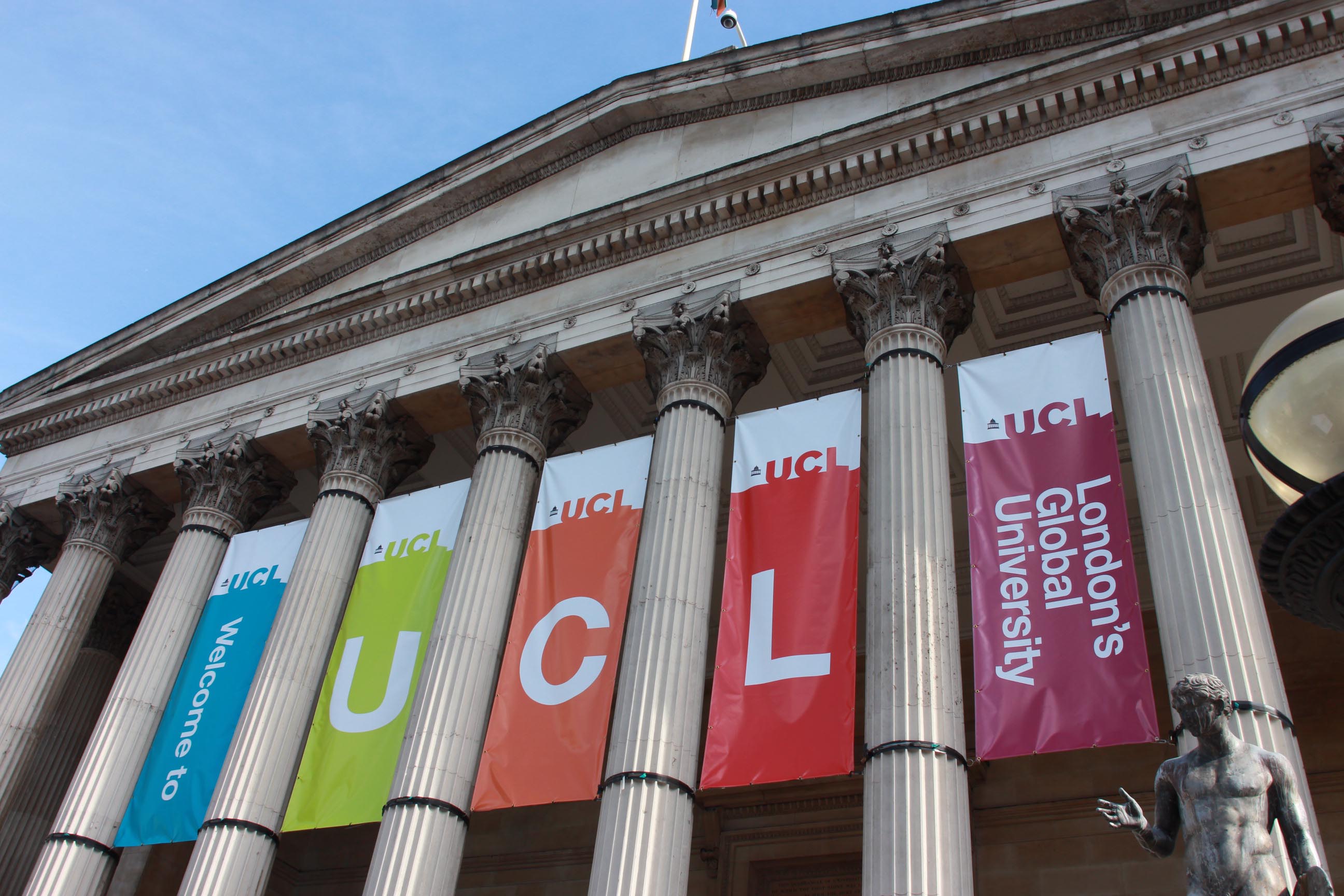
UCL consistently ranks among the top universities globally. In the 2023 QS World University Rankings, UCL is ranked 8th in the world, up from 10th in the previous year. In the Times Higher Education World University Rankings 2023, UCL is ranked 14th globally, maintaining its position from the previous year. The Academic Ranking of World Universities (ARWU) 2022 ranks UCL 16th in the world, up from 18th in the previous year.
These rankings reflect UCL’s excellence in teaching, research, and international outlook. UCL is a research-intensive university with a strong focus on interdisciplinary collaboration. The university has a diverse student body and faculty, with students from over 150 countries and staff from over 120 countries.
UCL Innovation and Entrepreneurship
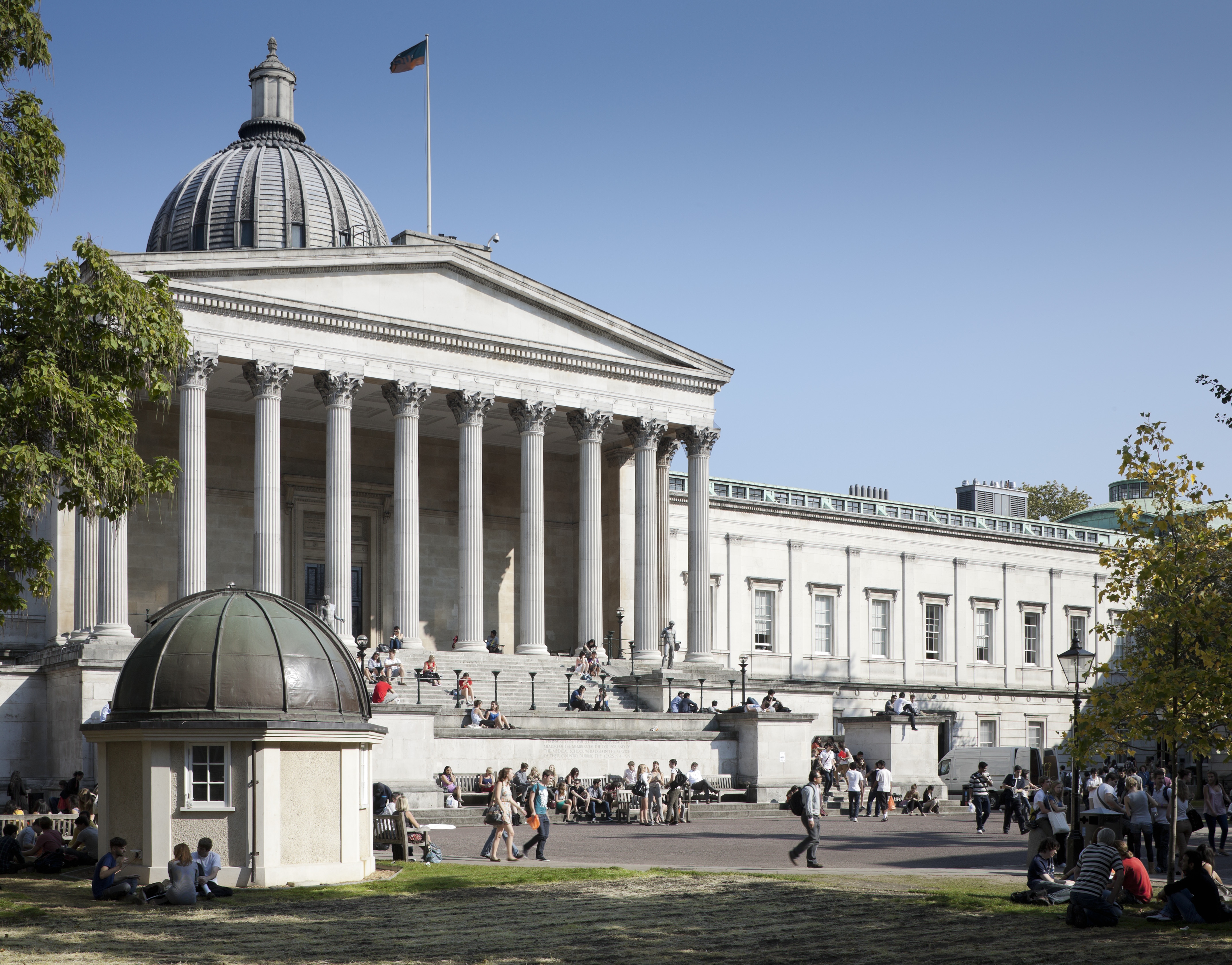
UCL has a strong track record in fostering innovation and entrepreneurship. The university has a dedicated Innovation & Enterprise team that provides support to students, researchers, and staff who want to commercialize their research or start their own businesses.
UCL has also established a number of initiatives to support innovation and entrepreneurship, including:
UCL Innovation and Enterprise Hub
The UCL Innovation & Enterprise Hub is a physical space where students, researchers, and staff can come together to collaborate on new ideas and projects. The Hub provides access to resources such as mentorship, training, and funding.
UCL Technology Fund
The UCL Technology Fund is a £100 million fund that invests in early-stage companies that are developing technologies with the potential to make a significant impact on the world.
UCL Innovation Fund
The UCL Innovation Fund is a £10 million fund that provides grants to students and researchers who are developing new products or services.
UCL Entrepreneurship Society
The UCL Entrepreneurship Society is a student-led organization that provides support to students who are interested in starting their own businesses.
These initiatives have helped UCL to become a leading center for innovation and entrepreneurship. The university has produced a number of successful startups and spin-offs, including:
* BenevolentAI, a company that uses artificial intelligence to develop new drugs
* Exscientia, a company that uses artificial intelligence to design new molecules
* Touch Surgery, a company that provides surgical training using virtual reality
UCL is committed to continuing to support innovation and entrepreneurship. The university believes that these activities are essential for driving economic growth and creating new jobs.
UCL International Outlook
UCL embraces a global outlook, fostering a diverse and interconnected academic community. The university maintains a strong presence worldwide through partnerships, collaborations, and international initiatives.
UCL boasts a significant international student body, with over 40% of its students hailing from outside the United Kingdom. This diverse student population enriches the campus experience and promotes cross-cultural exchange.
Global Partnerships
UCL has established strategic partnerships with leading universities and institutions worldwide. These partnerships facilitate research collaborations, student exchanges, and joint programs. Notable partnerships include those with:
- The University of California, Berkeley
- The National University of Singapore
- The University of Melbourne
- The University of Tokyo
International Research Collaborations
UCL actively participates in international research initiatives, contributing to advancements in various fields. The university is a member of the League of European Research Universities (LERU) and collaborates with organizations such as the World Health Organization (WHO) and the United Nations Development Program (UNDP).
UCL researchers engage in joint projects with colleagues from around the world, leveraging their expertise and resources to address global challenges.
International Staff
UCL’s academic and professional staff reflect the university’s international outlook. Over 30% of staff are from outside the United Kingdom, bringing diverse perspectives and expertise to the institution.
UCL Impact on Society
UCL holds public engagement and outreach in high regard, recognizing their significance in bridging the gap between academia and the broader community. The university actively participates in initiatives that address societal challenges and foster positive change.
Research Impact on Policy and Practice
UCL research has a substantial impact on policy and practice. For instance, research conducted at the UCL Institute of Education has influenced educational policies in the United Kingdom and internationally. Similarly, research from the UCL Institute for Global Health has informed global health policies and programs.
UCL Student Experience
University College London (UCL) offers a comprehensive and enriching student experience, encompassing both academic and extracurricular opportunities. Students benefit from a diverse and vibrant academic environment, cutting-edge research facilities, and a wide range of student societies and activities.
UCL’s academic programs are highly regarded, with the university consistently ranking among the top universities in the world. Students can choose from a broad selection of undergraduate and postgraduate degrees, spanning various disciplines, including arts and humanities, social sciences, science, engineering, and medicine.
Research Opportunities
UCL is a research-intensive university, providing students with exceptional opportunities to engage in cutting-edge research. Students can participate in research projects alongside world-renowned academics, gaining valuable hands-on experience and contributing to the advancement of knowledge.
Student Societies
UCL boasts a thriving student life, with over 300 student societies catering to a diverse range of interests and backgrounds. These societies offer students opportunities to connect with like-minded individuals, pursue their passions, and develop leadership and organizational skills.
Testimonials
“UCL’s interdisciplinary approach to education has broadened my perspective and allowed me to explore different fields of study. The research opportunities available have been invaluable, providing me with practical experience and a deep understanding of my subject.” – Sarah, current UCL student
“The student societies at UCL are incredible. I’ve met so many amazing people and made lifelong friends through my involvement in the music society and the debating society.” – John, former UCL student
Student Support Services
UCL provides a comprehensive range of student support services to ensure the well-being and success of its students. These services include academic advising, mental health counseling, career guidance, and financial assistance.
– Explain the role of UCL’s Sustainability Leadership Team in driving sustainability initiatives.
UCL’s Sustainability Leadership Team (SLT) is responsible for developing and implementing the university’s sustainability strategy. The SLT is made up of senior leaders from across UCL, including the President & Provost, the Vice-Provost (Operations), and the Director of Sustainability.
The SLT’s role is to:
- Provide strategic leadership on sustainability
- Develop and implement the university’s sustainability strategy
- Monitor and report on progress towards sustainability goals
- Engage with stakeholders on sustainability issues
UCL Architecture and Design
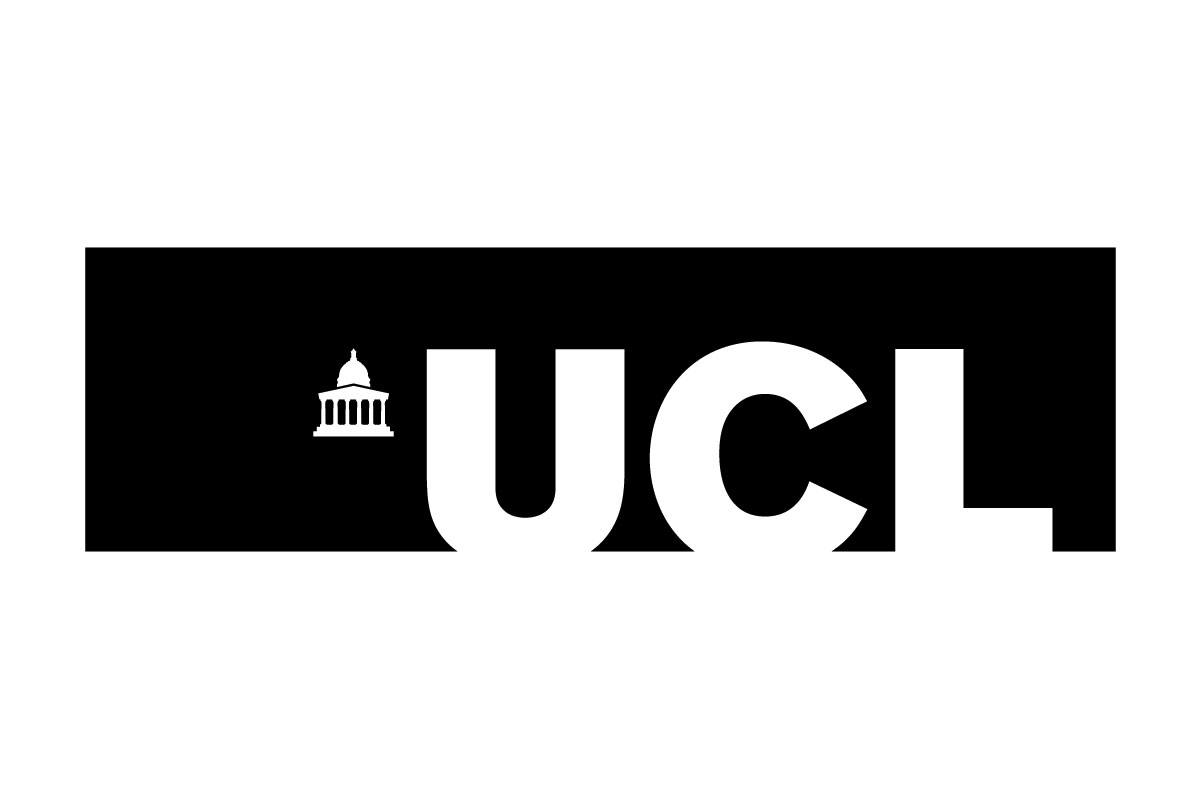
UCL’s campus is renowned for its architectural beauty and historical significance. The university’s buildings range from grand Victorian structures to modern, award-winning designs. Many of UCL’s buildings are listed as Grade I or Grade II by Historic England, recognizing their architectural and historical importance.
One of the most iconic buildings on UCL’s campus is the Wilkins Building, which houses the university’s main library. The building was designed by William Wilkins and completed in 1837. It is a fine example of Greek Revival architecture, with a grand Ionic portico and a domed reading room. Another notable building on campus is the Gower Street Building, which was designed by James Pennethorne and completed in 1841. It is a large, neoclassical building with a central courtyard and a clock tower.
In recent years, UCL has invested heavily in new buildings and facilities. These include the Student Centre, which was designed by Stanton Williams and completed in 2012. The Student Centre is a modern, glass-fronted building that provides a variety of student services, including a library, a café, and a gym. Another recent addition to UCL’s campus is the Bartlett School of Architecture, which was designed by Stanton Williams and completed in 2016. The Bartlett School of Architecture is a state-of-the-art building that provides students with a world-class learning environment.
UCL’s Architectural Significance
UCL’s campus is a testament to the university’s long and distinguished history. The buildings on campus reflect the different architectural styles that have been popular over the years. The campus is also home to a number of public artworks, including sculptures, mosaics, and murals.
UCL’s campus is a vibrant and welcoming place to study and work. The university’s buildings are a source of pride for the UCL community and are an important part of the university’s identity.
Architects and Designers Involved in UCL’s Development
- William Wilkins
- James Pennethorne
- Stanton Williams
UCL Art and Culture
UCL actively promotes arts and culture through its museums, galleries, and performance spaces, which are open to the public and offer a diverse range of exhibitions, performances, and events.
Museums and Galleries
- Petrie Museum of Egyptian Archaeology: Houses a vast collection of over 80,000 artifacts from ancient Egypt.
- Grant Museum of Zoology: Features a collection of over 67,000 zoological specimens, including many rare and endangered species.
- UCL Art Museum: Exhibits a wide range of art, from ancient sculptures to contemporary paintings.
Performance Spaces
- UCL Bloomsbury Theatre: A 540-seat theater that hosts a variety of performances, including plays, dance, and music.
- UCL Cinema: Screens a diverse range of films, from classic to contemporary and independent.
- UCL Slade School of Fine Art: Offers exhibitions and performances by students and faculty.
Cultural Events and Initiatives
UCL hosts a range of cultural events and initiatives, such as:
- UCL Festival of Culture: An annual event that celebrates the university’s cultural diversity and showcases its arts and culture offerings.
- UCL Culture Fund: Provides funding for student-led cultural projects and initiatives.
- UCL Cultural Quarter: A designated area in Bloomsbury that brings together UCL’s cultural venues and institutions.
UCL Sports and Recreation
UCL offers a wide range of sports and recreational activities for students and staff, catering to various interests and fitness levels. From traditional team sports like football and cricket to individual pursuits like swimming and tennis, there’s something for everyone to enjoy.
UCL Sports Facilities
UCL boasts several state-of-the-art sports facilities, including:
– Main Sports Ground (Mile End): Featuring football pitches, cricket pitches, tennis courts, and an athletics track.
– Bloomsbury Fitness Centre (Bloomsbury): Equipped with a gym, swimming pool, and fitness class studios.
– Water Sports Centre (Regent’s Park): Offers canoeing, kayaking, and sailing activities.
Notable Achievements of UCL Sports Teams
UCL sports teams have achieved notable success over the years, including:
– UCL’s women’s football team won the British Universities & Colleges Sport (BUCS) Championship in 2022.
– UCL’s rowing team has produced several Olympic medalists, including gold medalists Helen Glover and Heather Stanning.
– UCL’s fencing team is one of the most successful in the UK, winning numerous national and international competitions.
Unique Sports Programs and Initiatives
UCL offers unique sports programs and initiatives, such as:
– Inclusive Sport: Providing opportunities for students and staff with disabilities to participate in sports.
– Women in Sport: Supporting and empowering women in sports through scholarships and mentorship programs.
– Sustainability in Sport: Promoting environmental sustainability in sports through initiatives like waste reduction and energy efficiency.
Get involved in UCL Sports and Recreation and enjoy the benefits of an active and healthy lifestyle while connecting with the UCL community.
UCL’s Contributions to Healthcare and Medical Research
University College London (UCL) is a global leader in healthcare and medical research, with a long and distinguished history of groundbreaking discoveries and advancements that have transformed patient care and outcomes.
UCL’s contributions to healthcare span a wide range of disciplines, including:
- Cancer research
- Cardiovascular disease
- Neurodegenerative disorders
- Infectious diseases
- Precision medicine
- Health data science
Cancer Research
UCL is home to one of the largest and most comprehensive cancer research centers in the world, with over 500 scientists working across a range of disciplines to develop new treatments and improve outcomes for patients.
Notable achievements in cancer research at UCL include:
- The discovery of the BRCA1 and BRCA2 genes, which are responsible for a significant proportion of breast and ovarian cancers.
- The development of new drugs and therapies for a range of cancers, including leukemia, lymphoma, and melanoma.
- The establishment of the UCL Cancer Institute, which brings together scientists from across the university to work on a range of cancer-related projects.
Cardiovascular Disease
UCL is also a leader in cardiovascular research, with a particular focus on understanding the causes and developing treatments for heart disease and stroke.
Key achievements in cardiovascular research at UCL include:
- The discovery of the genetic basis of familial hypercholesterolemia, a condition that leads to high cholesterol levels and an increased risk of heart disease.
- The development of new drugs and therapies for a range of cardiovascular diseases, including statins, beta-blockers, and ACE inhibitors.
- The establishment of the UCL Institute of Cardiovascular Science, which brings together scientists from across the university to work on a range of cardiovascular-related projects.
Neurodegenerative Disorders
UCL is also a leader in research on neurodegenerative disorders, such as Alzheimer’s disease, Parkinson’s disease, and motor neuron disease.
Notable achievements in neurodegenerative research at UCL include:
- The discovery of the genetic basis of Huntington’s disease.
- The development of new drugs and therapies for a range of neurodegenerative disorders.
- The establishment of the UCL Institute of Neurology, which brings together scientists from across the university to work on a range of neurology-related projects.
UCL Future and Vision
UCL is a forward-looking institution with a clear vision for the future. The university’s strategic priorities are focused on:
- Research excellence: UCL aims to be a world-leading research university, making significant contributions to knowledge and innovation.
- Teaching excellence: UCL is committed to providing an outstanding student experience, preparing students for success in their careers and lives.
- Global engagement: UCL is a global university, with a commitment to working with partners around the world to address global challenges.
- Sustainability: UCL is committed to sustainability, and to reducing its environmental impact.
- Equality, diversity, and inclusion: UCL is committed to creating an inclusive environment where everyone feels welcome and respected.
UCL’s vision is to be a leading global university, making a positive impact on the world through its research, teaching, and engagement. The university is committed to working with partners around the world to address global challenges, and to creating a more sustainable and inclusive future.
Challenges and Opportunities
UCL faces a number of challenges and opportunities in the coming years. These include:
- The changing global higher education landscape: The global higher education landscape is changing rapidly, with new technologies and new ways of learning emerging. UCL must adapt to these changes in order to remain competitive.
- The need for sustainability: The world is facing a number of environmental challenges, and UCL must play its part in reducing its environmental impact.
- The need for equality, diversity, and inclusion: UCL is committed to creating an inclusive environment where everyone feels welcome and respected. The university must continue to work to promote equality, diversity, and inclusion.
UCL is well-positioned to meet these challenges and opportunities. The university has a strong track record of research excellence, teaching excellence, and global engagement. UCL is also committed to sustainability, equality, diversity, and inclusion.
Plans for Growth and Development
UCL has a number of plans for growth and development in the coming years. These include:
- Investing in research: UCL is investing in research, with a particular focus on interdisciplinary research that addresses global challenges.
- Expanding its global reach: UCL is expanding its global reach, with new partnerships and campuses around the world.
- Investing in sustainability: UCL is investing in sustainability, with a goal of becoming a net-zero carbon university by 2030.
- Promoting equality, diversity, and inclusion: UCL is promoting equality, diversity, and inclusion, with a goal of creating an inclusive environment where everyone feels welcome and respected.
UCL is confident that it can meet the challenges and opportunities of the future. The university has a clear vision for the future, and is committed to making a positive impact on the world.
Role of Innovation and Research, UCL
Innovation and research are at the heart of UCL’s future. The university is committed to supporting innovation and research, and to creating an environment where new ideas can flourish. UCL is home to a number of world-leading research centers, and the university’s researchers are making significant contributions to knowledge and innovation.
UCL’s research is focused on addressing global challenges, such as climate change, poverty, and disease. The university is also committed to working with partners around the world to share knowledge and expertise.
UCL’s innovation and research will play a key role in the university’s future. The university is committed to supporting innovation and research, and to creating an environment where new ideas can flourish.
Engagement with External Stakeholders
UCL is committed to engaging with external stakeholders, including government, industry, and the community. The university believes that collaboration is essential for addressing global challenges.
UCL works with a variety of external stakeholders, including:
- Government: UCL works with government at all levels, to inform policy and to support economic development.
- Industry: UCL works with industry to develop new technologies and to create new jobs.
- Community: UCL works with the community to address local challenges and to improve the quality of life.
UCL’s engagement with external stakeholders is essential for the university’s future. The university believes that collaboration is essential for addressing global challenges.
Examples of Future Vision
UCL is already working towards its future vision. The university has a number of initiatives in place to support innovation and research, to expand its global reach, to invest in sustainability, and to promote equality, diversity, and inclusion.
Some examples of UCL’s future vision in action include:
- The UCL Innovation & Enterprise Hub: The UCL Innovation & Enterprise Hub provides support to students and researchers who want to commercialize their ideas.
- The UCL Global Engagement Office: The UCL Global Engagement Office supports the university’s global partnerships and initiatives.
- The UCL Sustainability Strategy: The UCL Sustainability Strategy sets out the university’s commitment to sustainability.
- The UCL Equality, Diversity, and Inclusion Strategy: The UCL Equality, Diversity, and Inclusion Strategy sets out the university’s commitment to equality, diversity, and inclusion.
UCL is committed to its future vision. The university is working to create a more sustainable, inclusive, and prosperous future for all.
Last Point
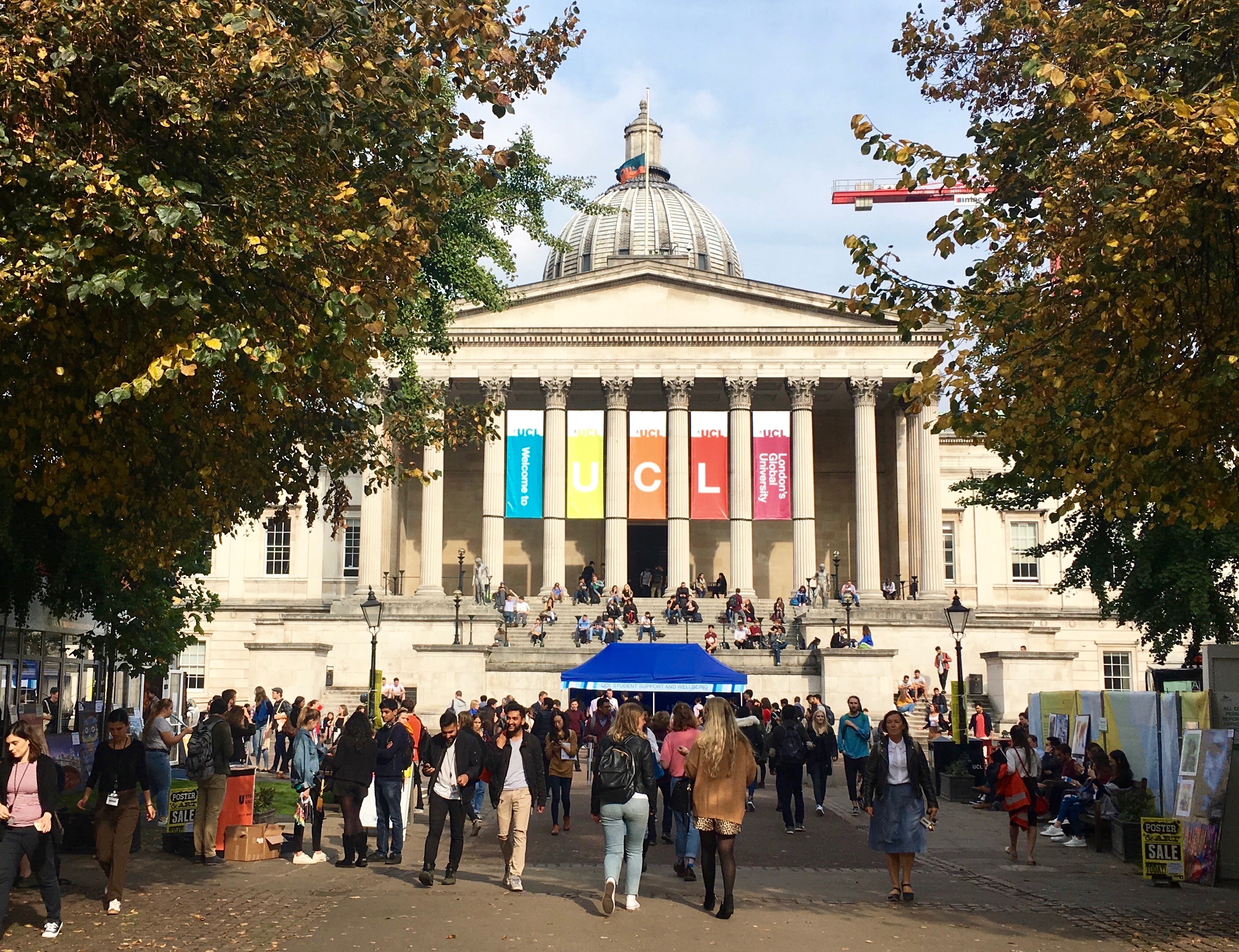
As UCL looks towards the future, it remains steadfast in its mission to advance knowledge, foster innovation, and contribute to the betterment of the world. With its unwavering commitment to excellence and global engagement, UCL is poised to continue its remarkable journey as a leading institution of higher learning.
User Queries
What is UCL’s founding principle?
UCL was founded on the principle of providing education to all, regardless of their background or beliefs.
How many Nobel laureates are associated with UCL?
UCL has 34 Nobel laureates among its alumni and staff.
What is UCL’s position in global university rankings?
UCL is consistently ranked among the top 10 universities in the world by major ranking organizations such as QS and THE.